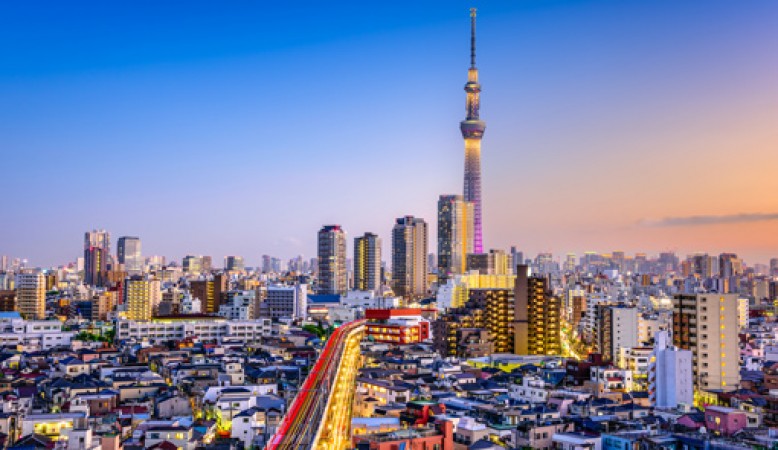
Cities are the vibrant hubs of human civilization, representing centers of commerce, culture, and innovation. With billions of people living in urban areas worldwide, cities have become essential components of modern society. Among these cities, some stand out for their sheer size and scale, making them the biggest metropolises in the world. In this article, we will explore and compare the largest cities on the planet based on different criteria, such as population, land area, and urban area, shedding light on the challenges and opportunities they face.
Definition of a City
Before delving into the specifics of the biggest cities, let's establish what defines a city. Generally, a city is a large and permanent human settlement with a high population density, extensive infrastructure, and economic activities. It serves as a focal point for various services and activities, offering a wide range of opportunities to its residents.
The Criteria for Measuring City Size
When determining the largest city in the world, we must consider multiple criteria. The primary factors are population, land area, and urban area.
Population
One common way to measure a city's size is by its population count. The more inhabitants a city has, the larger its impact on the global stage. A higher population often correlates with greater economic activities and cultural diversity.
Land Area
Land area refers to the total geographical expanse that a city covers. A vast land area is one indicator of a city's extensive reach and potential for growth.
Urban Area
Urban area measurement includes the city's built-up spaces and surrounding suburban areas. It provides a broader perspective of the city's spatial influence.
The Largest Cities in the World by Population
Tokyo, Japan
Tokyo stands as the most populous city in the world, with over 37 million inhabitants. It serves as the political, economic, and cultural center of Japan, attracting people from all walks of life.
Delhi, India
Delhi, the capital of India, is the second most populous city globally, with over 31 million residents. It is renowned for its historical landmarks and rapid urbanization.
Shanghai, China
Shanghai ranks third, boasting a population of over 27 million. This Chinese city has undergone tremendous growth in recent decades and has become a global financial hub.
Sao Paulo, Brazil
As the largest city in South America, Sao Paulo is home to over 21 million people. It is a major economic and cultural center in Brazil.
Mumbai, India
Mumbai, formerly known as Bombay, has a population of over 20 million, making it India's second-most populous city. It is known for its thriving film industry and financial district.
The Largest Cities in the World by Land Area
Hulunbuir, China
Hulunbuir, located in China's Inner Mongolia region, is the largest city in the world by land area. Covering approximately 263,953 square kilometers, it boasts stunning natural landscapes and vast grasslands.
Altamira, Brazil
Altamira ranks second in terms of land area, encompassing around 159,533 square kilometers. It is located in the state of Para, Brazil.
Qeqertalik, Greenland
Qeqertalik, a municipality in Greenland, is the third-largest city by land area, covering about 137,001 square kilometers.
Sado Island, Japan
Sado Island, off the coast of Japan, ranks fourth, spanning approximately 855 square kilometers. Its remote location adds to its unique charm.
Dillingham, Alaska, USA
Dillingham, situated in Alaska, USA, rounds out the top five with a land area of around 708 square kilometers.
The Largest Cities in the World by Urban Area
Tokyo-Yokohama, Japan
The Tokyo-Yokohama metropolitan area takes the lead in terms of urban area. It covers around 8,547 square kilometers and houses over 37 million people.
Jakarta, Indonesia
Jakarta, Indonesia's capital, comes second, with an urban area of approximately 3,600 square kilometers and a population of over 30 million.
Delhi, India
Delhi reappears on the list due to its vast urban area, which covers about 2,224 square kilometers and is inhabited by over 31 million people.
Manila, Philippines
Manila, the capital of the Philippines, ranks fourth, with an urban area of around 1,580 square kilometers and a population exceeding 24 million.
Seoul-Incheon, South Korea
Seoul-Incheon completes the top five, encompassing about 1,360 square kilometers and hosting over 23 million residents.
The Challenges and Opportunities in the World's Biggest Cities
While large cities present numerous opportunities for their inhabitants, they also face significant challenges that require careful management and planning.
Overpopulation
Overpopulation strains resources and infrastructure, leading to issues like housing shortages, traffic congestion, and environmental degradation. Sustainable urban planning and efficient public services are crucial to address this challenge.
Infrastructure
As cities grow, their infrastructure must keep pace. Adequate transportation, sanitation, and utilities are vital for the smooth functioning of megacities.
Pollution
With a high concentration of people and industries, large cities often grapple with pollution problems. Implementing green initiatives and sustainable practices can mitigate environmental impact.
Economic Growth
Big cities are often centers of economic activity, attracting businesses and driving innovation. However, disparities in wealth distribution and economic opportunities need to be addressed. the biggest cities in the world are awe-inspiring, representing the remarkable capabilities of human civilization. These metropolises are characterized by their significant populations, vast land areas, and sprawling urban spaces. Despite the challenges they face, they continue to be centers of progress and development. As we move into an increasingly urbanized future, it is essential to strike a balance between growth and sustainability to ensure a bright and prosperous world for all.
Saudi Arabia Extends E-Visa Program to Include Eight Additional Countries
Banff National Park: A Canadian Gem Surrounded by Natural Beauty
The Enchanting Alhambra Palace: A Journey Through Time and Beauty